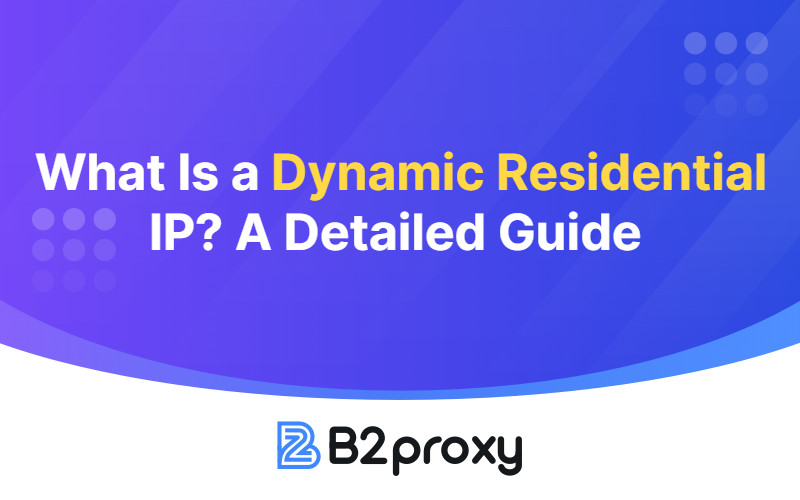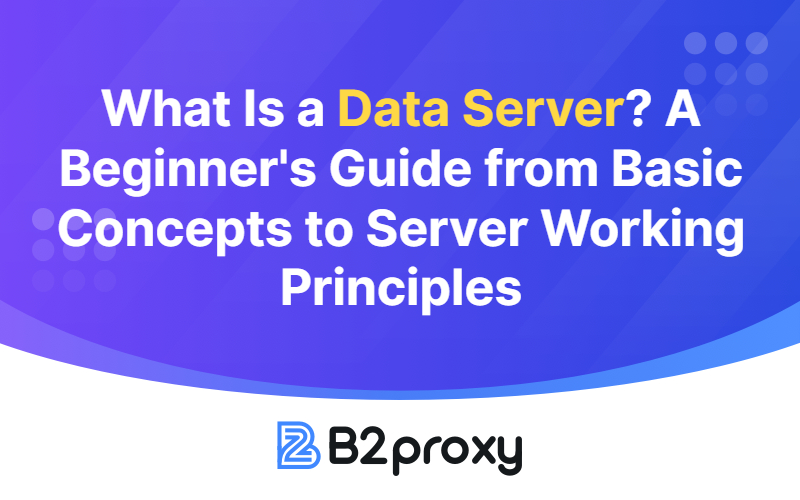Residential Proxies vs. Data Center Proxies: How to Choose?
 March 27.2025
March 27.2025

<p style="line-height: 2em;"><span style="text-wrap: nowrap;">The inherent differences between Residential and Data Center proxies often make it difficult for users to make a choice in proxy service selection. Understanding the core differences between these two proxy types, which are unique in terms of technical implementation, application scenarios and performance, is a key prerequisite for making the right choice.</span></p><p style="line-height: 2em;"><span style="text-wrap: nowrap;"><br/></span></p><p style="line-height: 2em;"><span style="text-wrap: nowrap;">Technical Principles and Network Characteristics</span></p><p style="line-height: 2em;"><span style="text-wrap: nowrap;"><br/></span></p><p style="line-height: 2em;"><span style="text-wrap: nowrap;">Residential proxies are built on real home network devices, with each IP address corresponding to a specific physical location and device. This proxy service utilizes residential broadband network resources to establish connections in a legal and compliant manner. Residential proxies maintain a high level of confidence in accessing most websites as the IP addresses are normally assigned by Internet Service Providers (ISPs). Residential proxies perform particularly well in scenarios where IP authenticity is critical, such as social media platforms and e-commerce sites.</span></p><p style="line-height: 2em;"><span style="text-wrap: nowrap;"><br/></span></p><p style="line-height: 2em;"><span style="text-wrap: nowrap;">Data center proxies are deployed in specialized server room environments to provide proxy services based on cloud computing infrastructure. The IP addresses of these proxies are uniformly assigned by the data center and have significant technical characteristics. The biggest advantage of data center proxies lies in connection speed and stability. Due to the unified server configuration and optimized network environment, their response time is usually 30%-50% faster than that of Residential proxies. For business scenarios that require high concurrent requests, data center proxies can provide more reliable performance.</span></p><p style="line-height: 2em;"><span style="text-wrap: nowrap;"><br/></span></p><p style="line-height: 2em;"><span style="text-wrap: nowrap;">Application Scenarios and Performance</span></p><p style="line-height: 2em;"><span style="text-wrap: nowrap;"><br/></span></p><p style="line-height: 2em;"><span style="text-wrap: nowrap;">Residential proxies are invaluable in simulating real-world user behavior. Market research firms use Residential proxies to collect price information from different regions, and the accuracy of the data obtained is over 99%. Ad verification businesses rely on the geo-targeting accuracy of Residential proxies to ensure the authenticity and reliability of advertising performance evaluations. In the field of social media management, Residential proxies can effectively avoid account restrictions due to IP anomalies.</span></p><p style="line-height: 2em;"><span style="text-wrap: nowrap;"><br/></span></p><p style="line-height: 2em;"><span style="text-wrap: nowrap;">Data center proxies are uniquely suited for large-scale data collection scenarios. Search engine optimization (SEO) monitoring tools often use data center proxies because they can support thousands of ranking queries per minute. Price comparison platforms leverage the high consolidation nature of data center proxies to enable real-time tracking of competitor prices. Cybersecurity testers prefer the clean environment of data center proxies to ensure that test results are not corrupted by network conditions.</span></p><p style="line-height: 2em;"><span style="text-wrap: nowrap;"><br/></span></p><p style="line-height: 2em;"><span style="text-wrap: nowrap;">Cost Effectiveness and Risk Management</span></p><p style="line-height: 2em;"><span style="text-wrap: nowrap;"><br/></span></p><p style="line-height: 2em;"><span style="text-wrap: nowrap;">Residential proxies typically cost more to serve than data center proxies, primarily due to the complexity of acquiring and maintaining real residential IP resources. Organizations need to weigh data quality against budgetary constraints, and the investment in Residential proxies often leads to more accurate business insights for business-critical data collection. One multinational retailer has seen a 40% improvement in market intelligence accuracy after adopting a Residential proxy, which has directly resulted in millions of dollars in procurement optimization benefits.</span></p><p style="line-height: 2em;"><span style="text-wrap: nowrap;"><br/></span></p><p style="line-height: 2em;"><span style="text-wrap: nowrap;">Data center proxies have a clear advantage in cost control and are particularly suitable for business scenarios that require large amounts of IP resources. However, users should be aware that some sensitive websites actively block data center IP segments. By using a mix of Residential and data center proxies, enterprises can find a balance between cost and effectiveness. A travel price comparison platform adopts an 8:2 ratio of data center and Residential proxies, which not only controls costs, but also ensures the success rate of acquiring key airline data.</span></p><p style="line-height: 2em;"><span style="text-wrap: nowrap;"><br/></span></p><p style="line-height: 2em;"><span style="text-wrap: nowrap;">Selection Strategies and Best Practices</span></p><p style="line-height: 2em;"><span style="text-wrap: nowrap;"><br/></span></p><p style="line-height: 2em;"><span style="text-wrap: nowrap;">There are three key dimensions to consider when choosing a proxy type: first, the nature of business needs, Residential proxy is preferred for scenes that require high fidelity, while data center proxy is preferred for the pursuit of performance and efficiency; second, the anti-crawl strength of the target website, Residential proxy is required for websites with stringent protection, while data center proxy is available for ordinary websites; and lastly, the budgetary constraints, Residential proxy is preferred when there is enough money, while data center proxy is available for a mixed use for large-scale deployments. Lastly, budget constraints.</span></p><p style="line-height: 2em;"><span style="text-wrap: nowrap;"><br/></span></p><p style="line-height: 2em;"><span style="text-wrap: nowrap;">Recommendations for implementation include: conducting small-scale tests to compare the performance of the two proxies on target websites; establishing flexible proxy usage policies and dynamically adjusting the proxy type according to the importance of the task; and continuously monitoring the proxy performance metrics, including the success rate, response time, and blocking rate. With the development of proxy technology, intelligent hybrid proxy services are emerging, which can automatically select the most optimal proxy type according to the access goal, and this may be the mainstream direction of enterprise proxy use in the future.</span></p><p><br/></p>
You might also enjoy

What Is a Dynamic Residential IP? A Detailed Guide to Cross-Border E-commerce Account Isolation and Risk Control Solutions
Breaks down dynamic residential IPs, highlighting their role in account isolation, risk control, and building secure cross-border e-commerce systems.
February 27.2026
How to Access TorrentGalaxy Stably? 2026 Latest Working Links and Proxy Solutions Explained
A practical 2026 guide to accessing TorrentGalaxy reliably, explaining domain shifts, ISP restrictions, proxy methods, and security considerations.
February 27.2026
What Is a Data Server? A Beginner's Guide from Basic Concepts to Server Working Principles
Beginner's guide to data servers, covering core concepts, working principles, architecture, stability factors, and future cloud-driven trends.
February 26.2026







